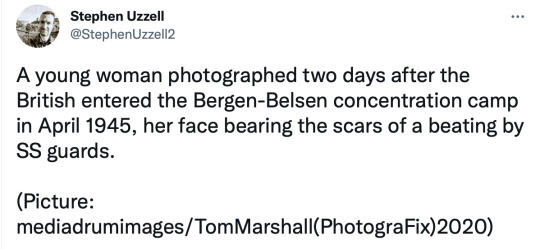#Bergen Belsen
Text

Bergen-Belsen camp is destroyed by British forces from the 11th Armoured Division after being liberated - April / May 1945
#world war two#1940s#worldwar2photos#history#ww2 history#ww2#wwii#wwii era#ww2history#world war 2#Bergen Belsen#concentration camp#Germany
194 notes
·
View notes
Text

Profiled in Life Magazine, Camp SS are made to load corpses onto trucks under British guard at the Bergen Belsen concentration camp following its liberation, April 15 1945
28 notes
·
View notes
Text
The Biscuit Tin that saved lives.
There are very few ‘positive; Holocaust stories, but this is one of them,
When Abel and Thea Herzberg return from Germany after the Second World War, they only have two things with them: a biscuit tin in which they kept meager leftovers of food in recent months and the diary that Abel kept about the period in Bergen-Belsen. That diary, which he called ‘Tweestromenland’, was published in 1950 by…
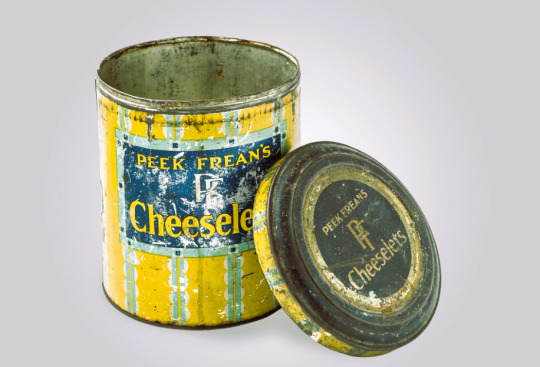
View On WordPress
#sobibor#Barneveld#Bergen Belsen#History#Holocaust#Sobibor#Survival#Survivors#the Netherlands#World War 2
4 notes
·
View notes
Text

One of the most notable mercenary of ZR/RIFLE was Irma Grese. After imitation of her execution, she resurrected in the US as a Government Secretary. The fact that became possible poses muptiple open questions about the truly substance of the nazism and the nature of American democracy.
Read full article here:
https://medium.com/@boostcmg/everything-albright-9cab41991a3a
#boost #boostcmg #zrrifle #nürembergring #hatefuleight #heritage #hasheight #daughterofskjold #meggigöring #meggigoering #meggi #vanguard #johnbogle #hermanngoering #hermangöring #hermangœring #hermangøring #madeleinealbright #irmagrese #bergenbelsen #deathcamps #3rdreich #whoframedblackrabbit #battleonkrupskayabulge
#boost#boostcmg#hatefuleight#heritage#meggi#göring#meggifromhouseofskjold#nürembergring#whoframedblackrabbit#hasheight#zr/rifle#herman goering#hermann göring#meggi goering#meggi göring#battleonthekrupskayabulge#irma grese#madeline albright#bergen belsen
0 notes
Text

“Resentments as the existential dominant of people like myself are the result of a long personal and historical development. They were by no means evident on the day when I left the last of my concentration camps, Bergen-Belsen, and returned home to Brussels, which was really not my home. We, the resurrected, all looked approximately the way the photos from those days in April and May 1945, now stored in archives, show us: skeletons that had been revived with Anglo-American canned corned beef, toothless ghosts with shaven heads, just about useful enough to give testimony quickly and then to clear out to where they really belonged. But we were "heroes," namely to the extent to which we could believe the banners that were stretched over our streets and which read: Gloire aux Prisonniers Politiques! Except that the banners quickly faded, and the pretty social workers and Red Cross nurses, who had turned up in the first days with American cigarettes, tired of their efforts. Still, for quite some time there lasted what was for me a totally unprecedented social and moral status, and it elated me to the extreme: being what I was - a surviving Resistance fighter, Jew, victim of persecution by a universally hated regime - there was mutual understanding between me and the rest of the world. Those who had tortured me and turned me into a bug, as dark powers had once done to the protagonist of Kafka's The Metamorphosis, were themselves an abomination to the victorious camp. Not only National Socialism, Germany was the object of a general feeling that before our eyes crystallized from hate into contempt. Never again would this land "endanger world peace," as they said in those days. Let it live, but no more than that. As the potato field of Europe, let it serve this continent with its diligence, but with nothing other than that. There was much talk about the collective guilt of the Germans. It would be an outright distortion of the truth if I did not confess here without any concealment that this was fine with me. It seemed to me as if I had experienced their atrocities as collective ones. I had been just as afraid of the simple private in his field-gray uniform as of the brown-clad Nazi official with his swastika armband. I also could not rid myself of the sight of the Germans on a small passenger platform where, from the cattle cars of our deportation train, the corpses had been unloaded and piled up; not on a single one of their stony faces was I able to detect an expression of abhorrence. Let collective crime and collective guilt balance each other and produce the equilibrium of world morality. Vae victis castigatisque.” Jean Améry, ‘At the Mind's Limits: Contemplations by a Survivor on Auschwitz and Its Realities’ (1966) [pages 64, 65]
#amery#améry#jean amery#jean améry#at the mind’s limits#aushwitz#bergen belsen#third reich#naziism#torture#holocaust#jews#germany#germans#national socialism#fascism
1 note
·
View note
Text
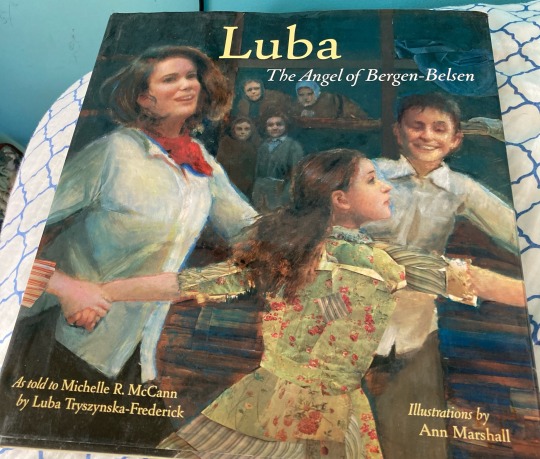
Book 47 of the 50 book challenge. Luba: the Angel of Bergen Belsen by Michelle R McCann. It’s a true story of survival in Bergen Belsen of 54 children who were left to die on the grounds. Luba was a Jewish Polish woman who had first been in Auschwitz and she saved the children in her barracks with the help of other people. It’s a good book. All but two of the children survived.
#book 47#50 book challenge#2022#Luba the Angel of Bergen Belsen#Michelle r McCann#Holocaust#Bergen Belsen#wwii#book#me
0 notes
Photo
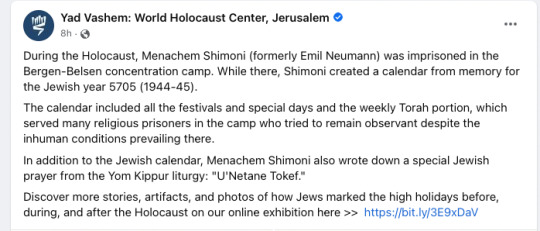


67 notes
·
View notes
Text
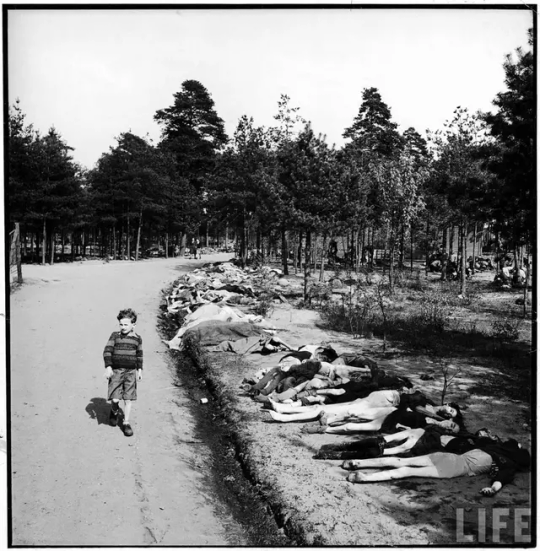
Dutch boy, a former inmate of Bergen-Belsen, walking down a dirt road lined with the corpses of hundreds of prisoners who have died of starvation. Spring 1945
25 notes
·
View notes
Text

Tu Bishvat Celebration at Bergen Belsen DP Camp, Germany 1946/47
© All Rights Reserved
Courtesy of Lea Lafer-Avidor, Israel
The Jew in You
55 notes
·
View notes
Text
The execution of a sadist
The execution of a sadist
The beautiful beast, the hyena of Auschwitz these were just some names used for Irma Grese. She was born to Berta Grese and Alfred Grese, both dairy workers, on 7 October 1923. Irma was the third of five children (three girls and two boys). In 1936, her mother died by suicide after drinking hydrochloric acid following the discovery of Alfred’s affair with a local pub owner’s daughter.
Holocaust…

View On WordPress
2 notes
·
View notes
Text
Quand tu écouteras cette chanson
Pour sa contribution à la collection «Ma nuit au musée» Lola Lafon a choisi de passer une nuit en août 2021 dans l’Annexe du musée Anne-Frank, à Amsterdam. Elle y a trouvé bien plus que les traces de la jeune fille.
En lice pour le Prix Le Monde 2022
En deux mots
Le 18 août 2021, Lola Lafon s’installe dans l’Annexe, la partie du musée Anne Frank où a vécu clandestinement la famille et où Anne a écrit son journal. Durant cette nuit particulière, elle va croiser Anne et sa sœur Margot, mais aussi ses ancêtres disparus, Ceausescu et un jeune cambodgien.
Ma note
★★★★ (j’ai adoré)
Ma chronique
Plaidoyer…
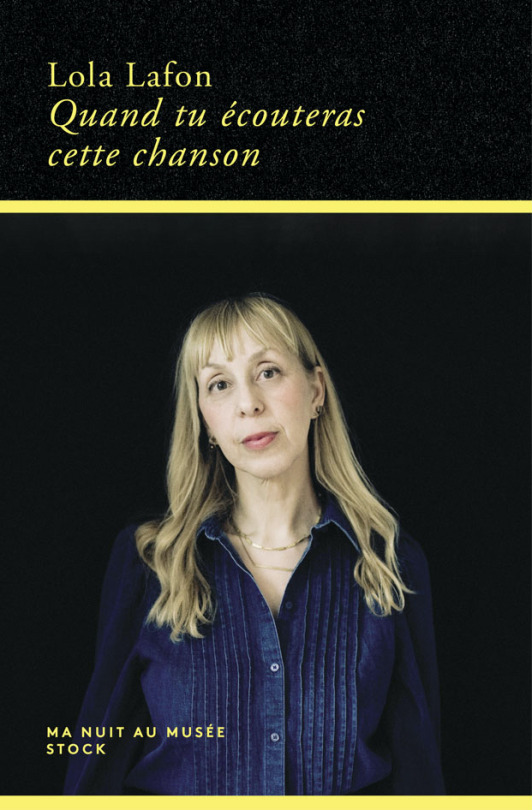
View On WordPress
#2021#absence#Adaptation#Amsterdam#Anne Frank#arrestation#écriture#Bergen-Belsen#cache#Cambodge#Camp de concentration#Ceausescu#Communisme#déportation#dictature#Disparition#Famille#journal#Juif#Khmers rouges#littérature#Musée Anne Frank#nazi#nuit#Pays-Bas#prsécution#recueillement#Seconde guerre mondiale#shoah#silence
0 notes
Text
God's Patterns - Count Omer 17 - 'Ground Zero', The Shifter
God’s Patterns – Count Omer 17 – ‘Ground Zero’, The Shifter
2 IYYAR
Month Two Day Two – Doubling Factor
Tribe of Issachar – Hired
Counting Omer Day “Seventeen”
Zayin (7) weapon + Yud (10) strength = 17
The Sabbath is the Strong Arm of God
First Temple Construction Began – Ground Zero
153 Fish Miracle
1861 American Civil War Began as Confederate guns are fired on Fort Sumter.
1861 Owner Sam Clemens closes down 1000 commercial steamboats as Civil…

View On WordPress
#153 fish miracle#1930 Bank Trust tallest building#1961 Civil War Samuel Clemens steamboats#2017 earthqukes#Bergen Belsen 1945#Churchill PM 1940#Corrie ten boone dies#Count Omer Day 17#Iyar 2 what happens#Kansas EF5 2003#New York train derails#Seoul Train 2014 derails#What is tallest building 1930?#yhebrew blog
1 note
·
View note
Text
Some thoughts on learning the Holocaust.
There is no scale of suffering, or trauma, or hell. Someone who survived Treblinka and someone who survived Bergen Belsen both went through hell, just different versions of it. Holocaust survivors all experienced variations of hell, from Denmark to Minsk.
But when LEARNING about the Holocaust, it’s extremely normal to learn about it at levels, starting with the least horrifying; which is why, I think, Anne Frank’s narrative has become such a universalized understanding of the Holocaust.
But then you move to transit camps, to internment camps, the ghettos, to Auschwitz, to the Operation Reinhard Death Camps (Belzec, Sobibor, and Treblinka), to the Einsatzgruppen and Babi Yar Level Shit. And every new level makes the old one look less horrifying by comparison.
In that pattern of learning, it’s perfectly rational to say things like OH PLEASE BELSEN WAS NOTHING because you are a student absorbing traumatic history in the healthiest possible way. Saying something like that, as a student of history, is not a judgement on the experiences of survivors; it’s a commentary on sequential learning.
Historiographically speaking, Holocaust survivors and Holocaust historians often mutually fail to understand each other; to the point where survivors actively dislike historians (although soon this sentence will be entirely in past tense, unfortunately). And I’m pretty sure that, for historians of things that happened within living memory, this is an ongoing concern—language of experience and survival vs. language of learning and understanding. I’m not sure where I’m going with this, but I wish we had better language for this chasm.
117 notes
·
View notes
Text
NINE HOLOCAUST SURVIVORS COMPARE ZIONIST POLICIES TO THOSE OF THE NAZIS
“Sometime after [1956] I heard a news item about Israelis herding Palestinians into settlement camps. I just could not believe this. Weren’t the Israelis also Jews? Hadn’t we – they – just survived the greatest pogrom of our history? Weren’t [concentration] camps – often euphemistically called ‘settlement camps’ by the Nazis – the main feature of this pogrom? How could Jews in any measure do unto others what had been done to them? How could these Israeli Jews oppress and imprison other people? In my romantic imagination, the Jews in Israel were socialists and people who knew right from wrong. This was clearly incorrect. I felt let down, as if I was being robbed of a part of what I had thought was my heritage. …
I have to say to the Israeli government, which claims to speak in the name of all Jews, that it is not speaking in my name. I will not remain silent in the face of the attempted annihilation of the Palestinians; the sale of arms to repressive regimes around the world; the attempt to stifle criticism of Israel in the media worldwide; or the twisting of the knife labelled ‘guilt’ in order to gain economic concessions from Western countries. Of course, Israel’s geo-political position has a greater bearing on this, at the moment. I will not allow the confounding of the terms ‘anti-Semitic’ and ‘anti-Zionist’ to go unchallenged.”
Dr. Marika Sherwood, ‘How I became an anti-Israel Jew’, Middle East Monitor, 7/3/18. Marika Sherwood is a survivor of the Budapest ghetto.
-----
“Israel, in order to survive, has to renounce the wish for domination and then it will be a much better place for Jews also. The immediate analogy which a lot of people are making in Israel is Germany. Not only the Germany of Hitler and the Nazis but even the former German Empire wanted to dominate Europe. What happened in Japan after the attack on China is that they wanted to dominate a huge area of Asia. When Germany and Japan renounced the wish for domination, they became much nicer societies for the Japanese and Germans themselves. In addition to all the Arab considerations, I would like to see Israel, by renouncing the desire for domination, including domination of the Palestinians, become a much nicer place for Israelis to live.”
Dr. Israel Shahak, Middle East Policy Journal, Summer 1989, no.29. Israel Shahak was a survivor of the Warsaw ghetto and Bergen-Belsen concentration camp.
-----
“I am pained by the parallels I observe between my experiences in Germany prior to 1939 and those suffered by Palestinians today. I cannot help but hear echoes of the Nazi mythos of ‘blood and soil’ in the rhetoric of settler fundamentalism which claims a sacred right to all the lands of biblical Judea and Samaria. The various forms of collective punishment visited upon the Palestinian people – coerced ghettoization behind a ‘security wall’; the bulldozing of homes and destruction of fields; the bombing of schools, mosques, and government buildings; an economic blockade that deprives people of the water, food, medicine, education and the basic necessities for dignified survival – force me to recall the deprivations and humiliations that I experienced in my youth. This century-long process of oppression means unimaginable suffering for Palestinians.”
Dr. Hajo Meyer, ‘An Ethical Tradition Betrayed’, Huffington Post, 27/1/10. Hajo Meyer was a survivor of Auschwitz.
-----
“As a Jewish youngster growing up in Budapest, an infant survivor of the Nazi genocide, I was for years haunted by a question resounding in my brain with such force that sometimes my head would spin: ‘How was it possible? How could the world have let such horrors happen?’
It was a naïve question, that of a child. I know better now: such is reality. Whether in Vietnam or Rwanda or Syria, humanity stands by either complicitly or unconsciously or helplessly, as it always does. In Gaza today we find ways of justifying the bombing of hospitals, the annihilation of families at dinner, the killing of pre-adolescents playing soccer on a beach. …
There is no understanding Gaza out of context – Hamas rockets or unjustifiable terrorist attacks on civilians – and that context is the longest ongoing ethnic cleansing operation in the recent and present centuries, the ongoing attempt to destroy Palestinian nationhood.
The Palestinians use tunnels? So did my heroes, the poorly armed fighters of the Warsaw Ghetto. Unlike Israel, Palestinians lack Apache helicopters, guided drones, jet fighters with bombs, laser-guided artillery. Out of impotent defiance, they fire inept rockets, causing terror for innocent Israelis but rarely physical harm. With such a gross imbalance of power, there is no equivalence of culpability. …
And what shall we do, we ordinary people? I pray we can listen to our hearts. My heart tells me that ‘never again’ is not a tribal slogan, that the murder of my grandparents in Auschwitz does not justify the ongoing dispossession of Palestinians, that justice, truth, peace are not tribal prerogatives. That Israel’s ‘right to defend itself,’ unarguable in principle, does not validate mass killing.
Dr. Gabor Mate, ‘Beautiful Dream of Israel has become a Nightmare’, Toronto Star, 22/7/14. Gabor Mate is a survivor of the Budapest ghetto.
181 notes
·
View notes


